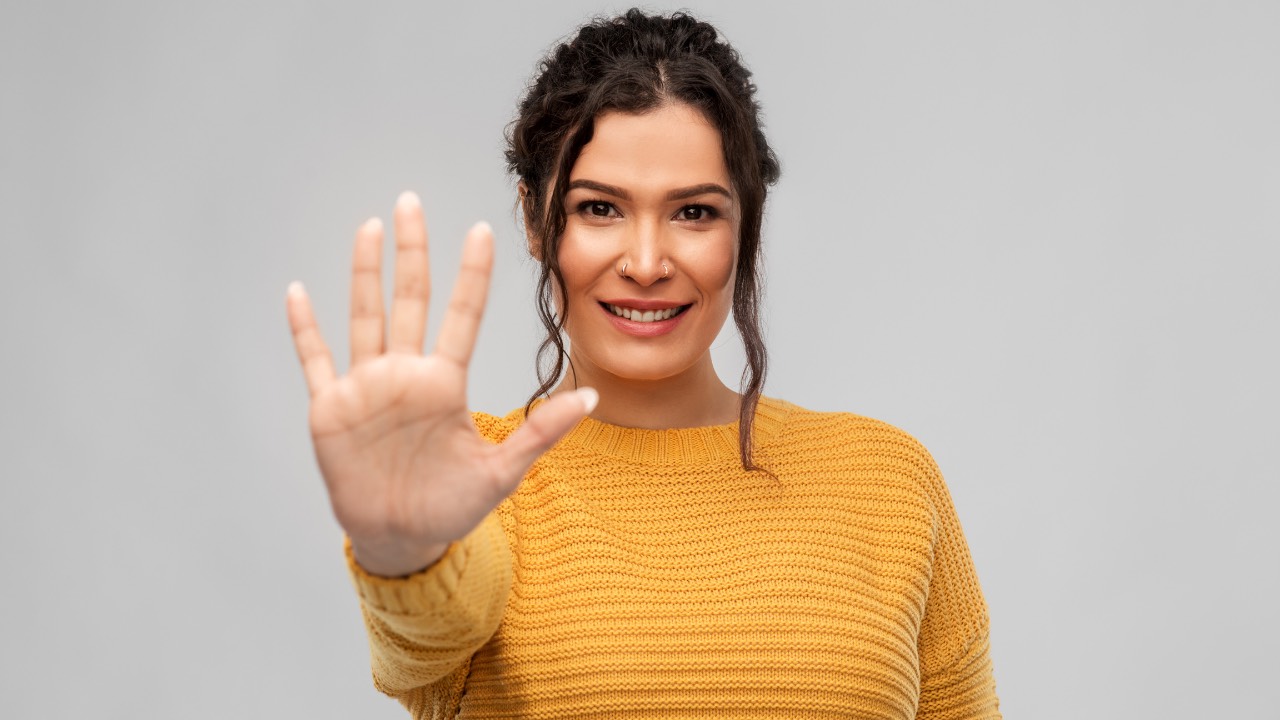The 7-Day Alcohol-Free Experiment That Changes Everything (Even If You Go Back to Drinking)
Nov 09, 2025
Seven days without alcohol won't transform your life, cure your anxiety, or give you the glowing skin of a wellness influencer. But here's what a week will do: reveal truths about your relationship with alcohol that you can't see while you're in it. These insights don't disappear if you decide to drink again - they fundamentally change how you understand your patterns, triggers, and choices around alcohol.
I'm not talking about a detox, a cleanse, or a willpower test. This is an experiment in conscious observation. For seven days, you become a researcher studying your own life, gathering data about when you reach for wine, why you want it, what you're hoping it will do, and what actually happens when it's not an option. The insights from these seven days often prove more valuable than months of moderation attempts or years of wondering if you drink too much.
The beauty of calling it an experiment is that experiments can't fail - they only produce data. If you desperately want wine on day three, that's data. If you sleep worse before sleeping better, that's data. If you realize you have no idea how to relax without alcohol, that's extremely valuable data. By the end of this post, you'll have a clear framework for conducting your own 7-day experiment in a way that generates insights rather than judgments.
Days 1-2: The Habit Disruption Phase (Your Brain's Confusion Is Information)
The first 48 hours reveal how deeply alcohol is woven into your daily architecture. Your brain, expecting its usual chemical reward at usual times, sends signals of confusion and mild panic. This isn't addiction talking - it's habit disruption, and it happens whether you drink daily or weekly. Pay attention to these moments: they're showing you exactly when and why alcohol has become your default solution.
You'll notice the trigger moments with startling clarity. The key turning in the door that signals wine time. The transition from work-brain to home-brain that alcohol usually manages. The kids' bedtime that typically launches your "finally me time" ritual with a glass. These moments feel uncomfortable not because you need alcohol, but because you've trained your brain to expect it as a transition tool, stress manager, or reward system.
Document everything without judgment. What time do cravings hit strongest? What emotions preceded the desire to drink? What were you hoping alcohol would provide - relaxation, celebration, numbness, energy, confidence? This documentation isn't about shame; it's about pattern recognition. You're gathering intelligence about your operating system, and this information remains valuable regardless of your future drinking decisions.
Days 3-4: The Emotional Reveal (What You've Been Not Feeling)
Days three and four often bring an emotional intensity that catches people off guard. Without alcohol's numbing effect, feelings you've been managing with wine suddenly demand attention. This might manifest as unexpected irritability, random tears, or an anxiety spike that seems to come from nowhere. This isn't your life falling apart - it's your emotional system coming back online.
The exhaustion that often hits mid-experiment isn't just physical. You're discovering how much energy you've been spending managing your drinking thoughts. The mental math of "how much is appropriate," the negotiations about tonight's drinks, the tomorrow's promises about cutting back - all that mental labor becomes visible when you remove alcohol from the equation. You might feel more tired without drinking simply because you're no longer artificially propping yourself up.
This is also when boredom often peaks. Without alcohol to create a sense of event around ordinary evenings, you might realize how little you actually do for genuine enjoyment. The hours between dinner and bed stretch impossibly long. This boredom is instructive: it's showing you how much heavy lifting alcohol was doing to make routine feel like enough. Whether you drink again or not, this awareness pushes you toward building a life that doesn't require escaping.
Days 5-6: The Clarity Window (Your Actual Baseline Emerges)
Around day five, something shifts. The habit disruption anxiety calms, the emotional intensity stabilizes, and you catch glimpses of your actual baseline - who you are and how you feel without alcohol's daily interference. This isn't a miracle transformation; it's simply your unaltered state, and noticing the difference (or lack thereof) provides crucial information.
Sleep patterns start revealing their true nature. You discover whether your insomnia was alcohol-induced or runs deeper. You learn if your afternoon energy crashes were wine hangovers or natural rhythms. Your anxiety levels show you whether alcohol was medicine or cause. These observations matter because they separate what alcohol was actually doing from what you believed it was doing.
Social situations during this window become particularly instructive. You attend a dinner, a work event, or a weekend gathering without drinking and discover what's actually hard versus what you imagined would be hard. Often, the anticipation proves worse than the reality. Sometimes you realize certain social situations are genuinely unbearable without alcohol - which raises the question of why you're participating in unbearable situations.
Day 7: The Decision Point (What You Now Know That You Didn't Know Before)
Day seven arrives with a decision to make, but more importantly, with information you didn't have seven days ago. You know exactly when and why you want to drink. You know what emotions you're trying to manage. You know which situations feel impossible without alcohol and which were easier than expected. You know how your body feels without daily processing of ethanol. This knowledge doesn't disappear if you choose to drink again.
The physical data alone is valuable: energy patterns, sleep quality, digestive changes, skin appearance, morning clarity. But the psychological insights cut deeper. You understand what you're seeking from alcohol - confidence, relaxation, transformation, numbness, permission, rebellion. You see which needs are real and which are stories you've been telling yourself. You recognize which problems alcohol solves and which it creates.
Most importantly, you've proven you can do it. Seven days seemed impossible until it wasn't. This proof of capability changes your relationship with alcohol even if you return to drinking. You know you can stop when you choose. You know what happens when you do. You know the difference between can't and won't, between need and want, between habit and choice. This knowledge fundamentally shifts the power dynamic between you and alcohol.
The Three Experiment Outcomes (All Equally Valid)
Outcome 1: You Return to Drinking With New Awareness Many people complete seven days and choose to drink again, but differently. Armed with data about triggers, patterns, and impacts, you make conscious choices rather than default habits. You might skip weeknight wine but enjoy weekends. You might notice you only actually enjoy the first drink. You might realize certain situations require alcohol to be tolerable and question those situations rather than your drinking. This conscious return to drinking is completely valid and often more sustainable than attempts at permanent abstinence.
Outcome 2: You Extend the Experiment Seven days often generates enough positive data that you're curious about fourteen, thirty, or ninety days. What else might emerge with more time? The experiment framework continues to serve you - you're still gathering data, still observing without judgment, still free to make different choices as you learn. Many people find that extending "just another week" feels easier than committing to forever, and weeks can string together into months of discovery.
Outcome 3: You Decide You're Done Sometimes seven days provides such clarity that you know you're finished drinking. The data reveals that alcohol takes more than it gives, causes problems it promises to solve, keeps you stuck in patterns you're ready to transcend. This knowing feels different from previous attempts to quit - it's based on evidence rather than shoulds, experience rather than fear, clarity rather than shame. The experiment gave you proof of what you suspected, and that proof makes the decision feel obvious rather than forced.
A seven-day experiment isn't about proving you have a problem or testing your willpower. It's about gathering information that's invisible while you're actively drinking. This data - about your patterns, triggers, emotions, and actual baseline - remains valuable regardless of what you decide to do afterward. You might drink again with new awareness, extend the experiment from curiosity, or discover you're ready to be done. All outcomes are valid when they're based on information rather than assumption.
The framework is simple: seven days of observation without judgment. Notice when you want to drink, why you want it, what you hope it will do, and what happens when you don't. Document physical changes, emotional patterns, social dynamics, and personal insights. Treat yourself as a fascinating research subject rather than a problem to be fixed. The data you gather will tell you more about your relationship with alcohol than years of wondering and worrying.
The experiment works best when you understand your specific personality type, patterns, and natural tendencies. Your triggers aren't everyone's triggers. Your challenges won't match someone else's timeline. Your insights will be unique to your relationship with alcohol and your personality type.
Ready to understand yourself better before starting your 7-day experiment? Take my "What's Your Empowered Alcohol-Free Personality?" quiz to discover whether you're a Mindful Maven, Resilient Rebel, Connected Caregiver, or Visionary Explorer. You'll receive your personal empowerment anthem, a signature mocktail recipe for your personality type, and daily mantras that align with your unique approach to change. Understanding your type helps you recognize which patterns to watch for during your own 7-day experiment.
CLICK HERE TO TAKE THE FREE QUIZ!




